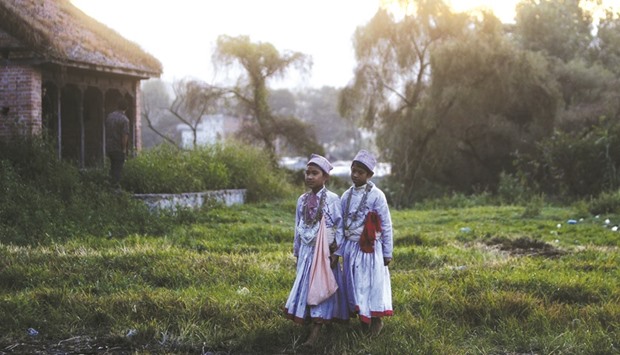People across Nepal are observing their biggest annual festival, called Dashain.
Tuesday marks the 10th and most important day of the fortnight-long festival that commemorates the victory of good over evil.
Nepalis all over the country are travelling to see family and have elders dab tika – a combination of rice, yoghurt and red powder – on the forehead as a form of blessing.
“Over 30 relatives had gathered in my house to receive tika this morning,” said Manish Gautam, a resident of Kathmandu.
According to police, over 2mn people have left the capital Kathmandu for their ancestral homes to receive tika and visit their relatives.
The Dashain celebrations will last for five more days.
“The unique customs and traditions of the peoples of different castes and ethnicities, communities, geographies and religious beliefs remain as the unparalleled treasures and cultural pillars of tolerance,” President Bidya Devi Bhandari said in her annual message.
According to Saroj Sitaula, general secretary of Federation of Nepalese National Transport Entrepreneurs, more than 3,000 passenger vehicles have been departing Kathmandu every day for the last few days, which is triple the number compared to regular days. To deal with the mass exodus of people, some entrepreneurs have secured other vehicles from different parts of the county to offer private services.
Police spokesperson Hemanta Malla Thakuri said that they have distributed time cards to the passenger vehicles to control the speed of drivers so that the vehicles operate at a safe speed as they head towards their
destinations.
“The government didn’t accept the transport entrepreneurs’ demand for permission to carry passengers beyond the existing standard and they were forced to operate their vehicles under the existing rule,” said Malla.
Although this is second Dashain since a devastating earthquake in April 2015, it is the first to be celebrated properly in two years.
Last year’s festival came during internal political strife and a border dispute with India, and was marred by shortages of fuel and essential supplies.

Young boys dress in traditional attire for Dashain in Bhaktapur on the outskirts of Kathmandu yesterday.
